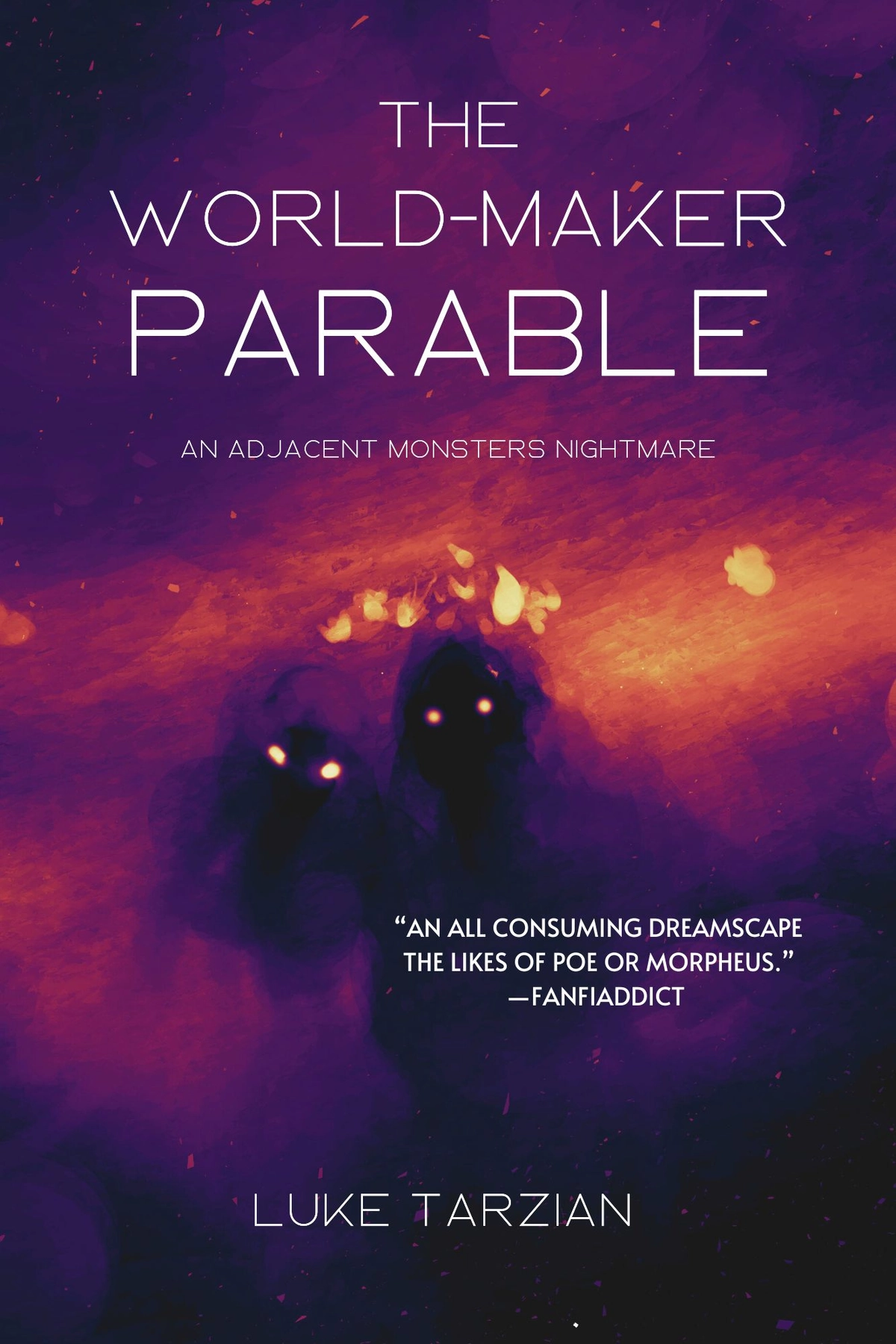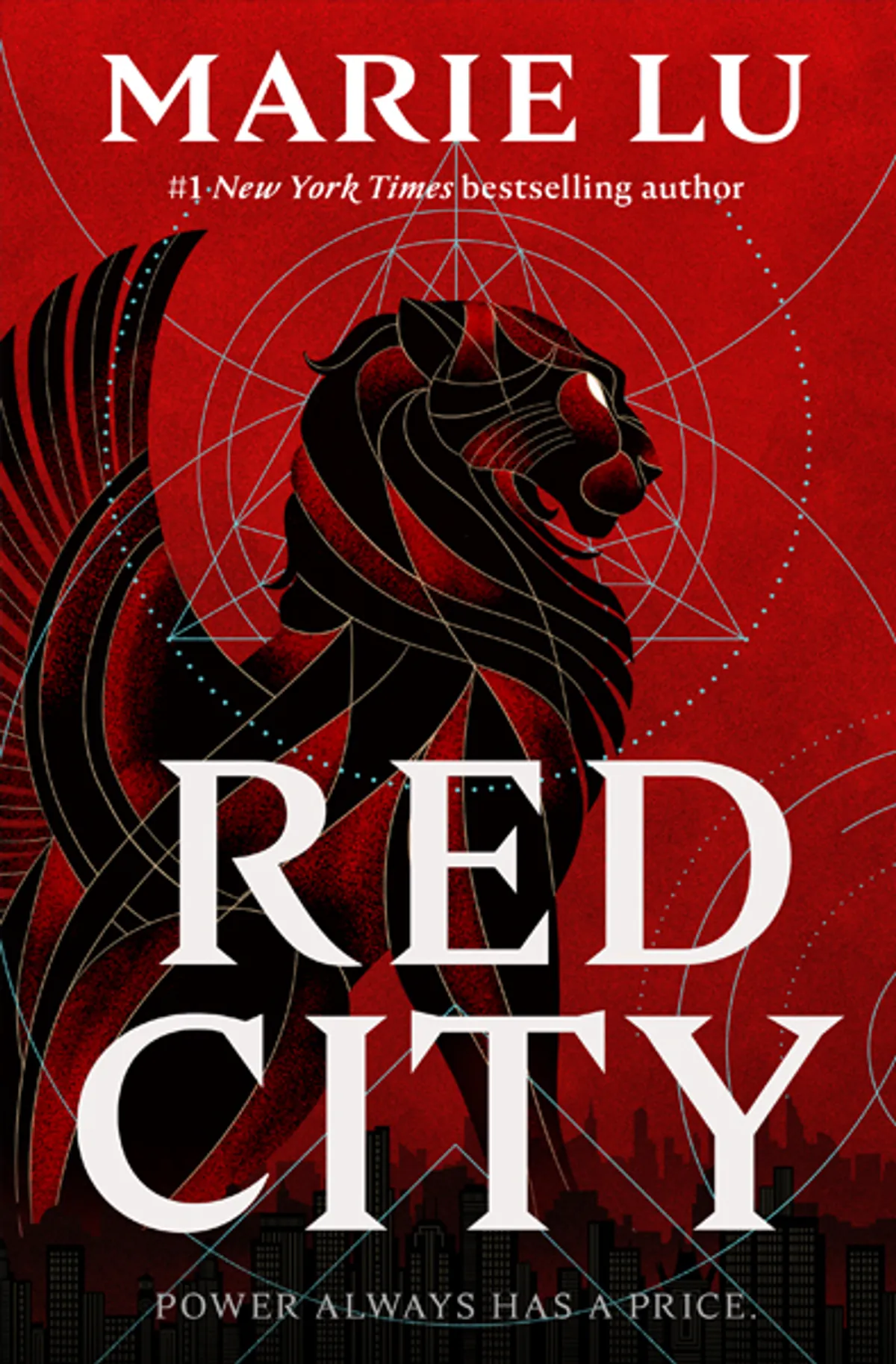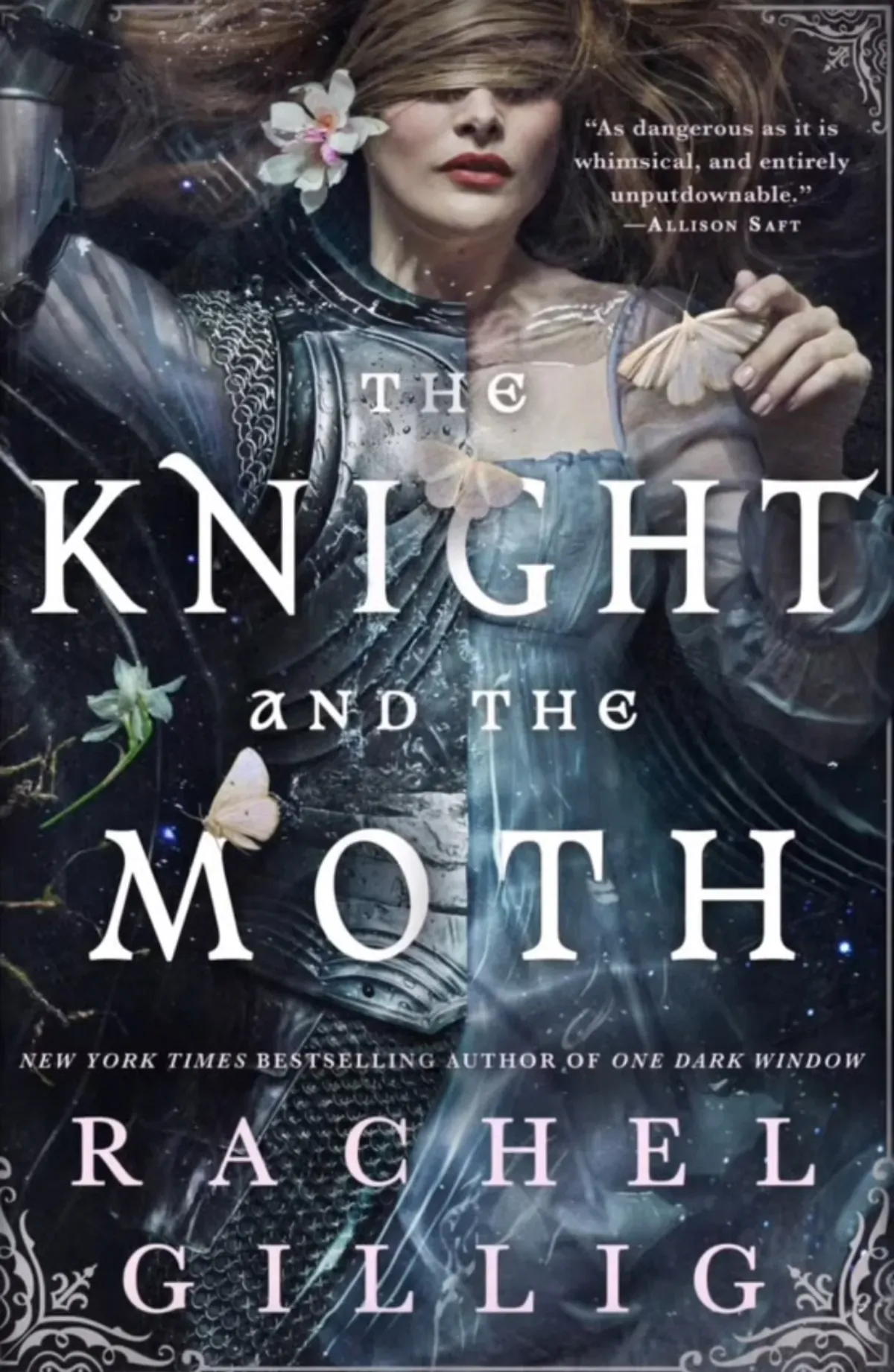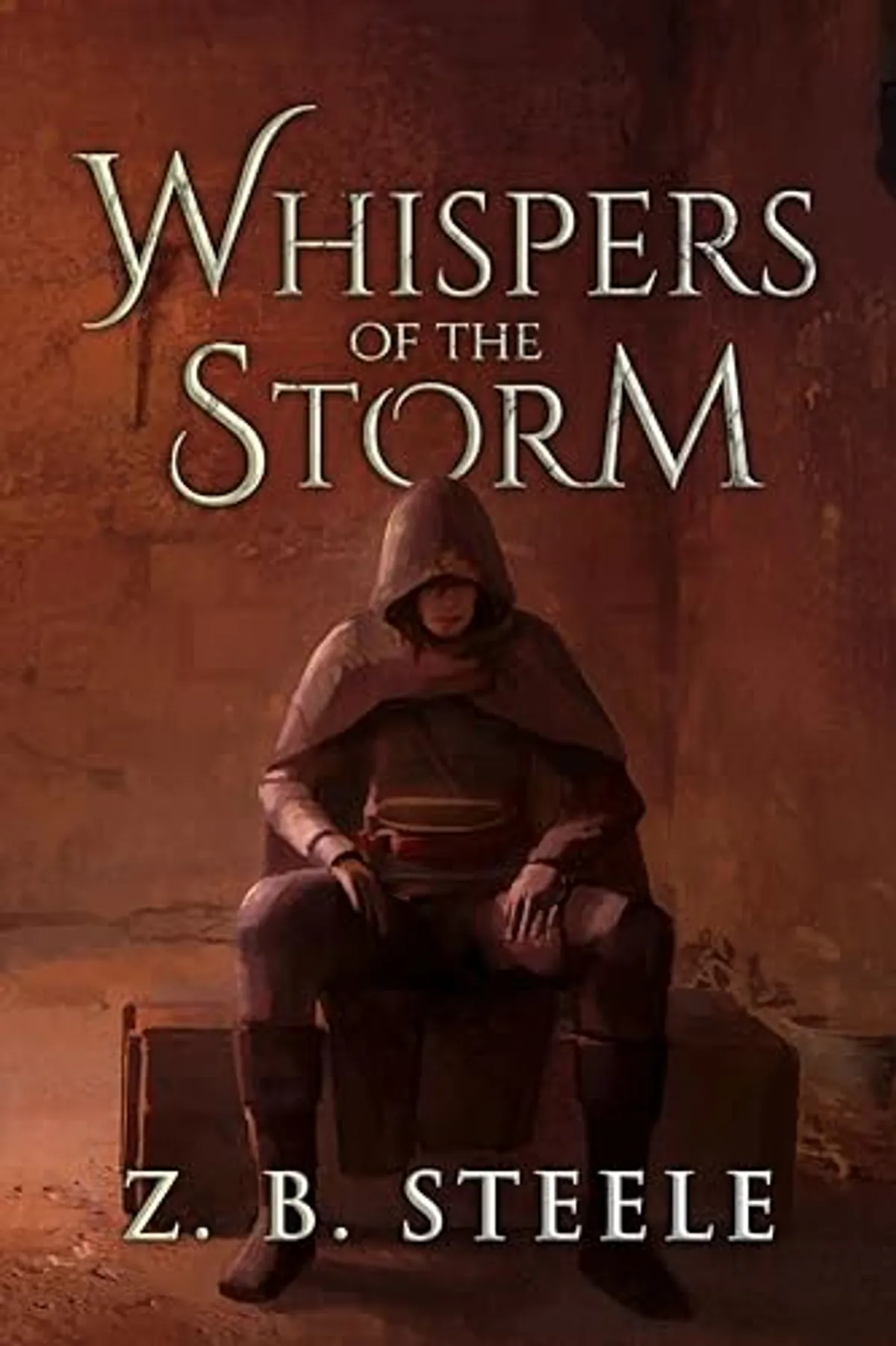The World-Maker Parable
by Luke Tarzian
Reviewed by Devin Ford on November 12, 2025
Est. Reading Time: 12 min
At a Glance: A Short Descent into Madness
The World-Maker Parable isn’t your typical fantasy, it’s a descent into fractured minds where the world bends to mental state and nothing feels solid. Luke Tarzian’s novella doesn’t just explore psychological horror, it is psychological horror wrapped in fantasy elements, demanding your full attention as you navigate unreliable consciousness through stunning prose. His lyrical prose really helps capture the gravity of the realities the characters face, while simultaneously managing to build a fully fleshed out—albeit creepy as hell—world that requires a bit of patience and a lot of focus.
The World-Maker Parable is an indie fantasy novella that leans heavily into the darkness and psychological aspects over straight fantasy worldbuilding. It’s delivered through 2 different POVs while also shifting between different timelines. It has a heavy unreliable narrator style, but unlike the typical versions most people are accustom to with something like a framed narrative, this is very much thematically influenced and inferred vs outright lies.
This all takes place in a unique fantasy realm that is ruled by bird like goddesses who are polar opposites and ultimately will be the reason the world survives or completely dies out.
Two Picks We Think Are Worth Reading
Gateway read, then more in a similar vibe
Explore More Indie BooksFind even more deep dive indie book reviews
The Hang-Dead Forest: A Nightmare Dreamscape
The World-Maker Parable is a world in utter despair and on the verge of what felt like collapse, but I believe part of that is tied directly to the people who we view it through. Unlike many traditional fantasy books, Tarzian doesn’t provide a landscape with sprawling hills, named cities, or clear points of interest. Instead the book feels more akin to a bad dream, where the place you’re standing feels familiar but is murky and difficult to recall later, which is clearly by design and not an oversight. The world is meant to serve as that nightmare hellscape that we’re experiencing through the characters and not really something that is chartable.
The two bird goddesses are the focal point of the country, with the belief that the release of the Vulture goddess will bring an end to the world. Ultimately, the fate of the world feels like it’s all determined by the characters through whose POV we experience it. The magic is left vague, where typical fantasy has rules—in most cases—The World-Maker Parable takes the approach of keeping it intentionally obscure, instead directly tying it to the themes of the story. The one part that is clear is that the characters actions are what dictate how the magic operates and what effects—positive or negative—the magic has.
Alerion's will is our command. Those who ignore him are a threat to the continued unification of home.
The divide among the people comes from loyalty to the country, where anyone who defies the country’s beliefs will be accused of treason and brought to the Hang-Dead Forest where they will be left on display to decay in an effort to dissuade others from acting outside of the accepted way of things.
Rhona and Varésh: Portraits in Psychological Collapse
The World-Maker Parable is told through two POVs that don’t follow a cadence in terms of switching, but overall I never found myself wishing I was reading the other POV more. This POV structure also gives us the timeline shifts, which can sometimes feel abrupt when coupled with a simultaneous character perspective change.
Rhona Ruinell is our first and what feels like main POV, the story opens with her leading her love Djen to her execution in the Hang-Dead forest. Rhona is clearly loyal to the country and that loyalty is tested when Djen is sentenced to death for treason.
As the story progresses, it becomes clear that she has been doing everything within her mental power to justify the actions she’s taken, and convince herself that she is doing the right thing in choosing country over love. Being in the mind of someone who is clearly broken was an interesting experience that I haven’t seen executed in fantasy this way before. Her arc felt complete and realistic, what I found really compelling was getting to be “in the mind” of Rhona as the guilt and realization that she made the choice to execute Djen, and that she failed herself and used the sense of duty as an excuse.
Varésh Lúm-talé is our other point of view which—it felt like—we get less of on the page, but ultimately was the standout character for me personally. His sections really embodied that feeling of broken mental reality as he battled with his fragmented memory and a conscience that manifests and argues with him, constantly reminding him of what a horrible person he is.
Varésh seeks out the Phoenix goddess to absolve him of the horrible things he has done, instead of facing the reality that he was the one who actually committed the genocide. The realizations that he has throughout the book allow his arc to have what I felt a fitting conclusion, but also left me a bit confused as it unfolded.
Varésh Lúm-talé is many things, most of all a genocidal liar.
A few of the side characters were well done, but I felt the primary focus was on our two POVs, and while they had interesting moments, in the novella format they don’t get as much development as you’d see in a full length book. The only one that really stands out as I write this is the Vulture, but she was more of a thematic vessel than character if I had to categorize the goddess into a specific part of the story.
Experimental Structure: Foggy Until the Ending
Luke Tarzian certainly wasn’t afraid to thrust you directly into the thick of what was going on, blending the world building into the story to really paint the horrifying reality of these characters. It was bold, inventive, and blended in some great moments of fantasy mixed with truly dark scenarios. The pacing felt like it was on the money for the novella setting, but this book requires your undivided attention throughout otherwise you’ll be left even more confused then normal.
Tarzian has a very specific prose that can feel a little dense at times, but ultimately has an artistic quality many readers who enjoy experimental literary explorations will appreciate.
The World-Maker Parable is incredibly unclear through almost the entire book on what exactly the plot is driving towards, which is certainly by design based on the ending, but for me personally I don’t like to be so left in the dark on the plot. It made it hard to connect with Rhona especially because I just found myself having to re-listen to sections a few times because I felt like I was missing something. I was missing things, but not due to lack of attention, but design.
The ending really brings it all together, it has good emotional beats, and gives clarity to what felt like a foggy plot line through most of the book. I think this certainly helped justify the choices made in the way it was told, but I can’t lie and say that I didn’t wish I had a little more context sooner. I still think the ending could have been just as impactful with a bit more context added in earlier. As a big enjoyer of the “trust me bro” story telling style that trickles in the details, I did find myself questioning if I had the brains for a book like this a few times because I think that the prose was beautifully done, so much so that it left me wondering if I just wasn’t up to the task of the story.
I’m also not a big horror person, it’s not really my thing, I do enjoy a dark fantasy with horror weaved in, but I think this is much more a psychological horror story with fantasy elements. I think if you’re someone who enjoys the genre or someone who likes literary experimentation you’re going to absolutely love this.
Between the Sheets: Madness Doesn’t Enter the Bedroom
BroMantasy Spice Rating
Barely There
(Chaste Romance)
The argument could be made that at the core of this, it’s a bit of a love story, albeit a tragic one. Rhona and Djen are the hook of the entire novella, and while we do get some romantically intimate moments, we don’t ever go beyond the emotion earning this a 🌶️ (1.0) on our spice scale.
The focus of The World-Maker Parable is the exploration of morality and the cost of choice, but that theme is told through the characters, and the connection between Rhona and Djen is pivotal to Rhona’s arc and I think Tarzian did a great job making what they had feel real which helped push those themes to be more relatable.
Bro Reading Comfort: Waiting Room Ready
If you’re looking for a fun way to pass the time in the waiting room of the local mechanic, you won’t get any weird looks, while the cover is eerie, it’s also beautiful. This book does get heavy with it’s themes, and at times I can certainly see it being unsettling for some readers, which earns this a 😳😳 (2.5) on our comfort scale.
If you’re easily creeped out or spooked then I’d suggest making sure you’re not sitting in the park at night without a streetlight close by, but otherwise I think this is an embarrassment free read out in public.
Darkness Factor: Unflinching Examination of Mental Health
The World-Maker Parable starts as we enter a forest full of hanged people on display, so I think it’s safe to say the whole book is going to be pretty grim. It explores so many things related to mental health and certainly doesn’t shy away from the psychological toll they can have earning this a 💀💀💀 (3.5) on our darkness scale.
Tarzian explores guilt, trauma, and the resulting madness that comes from it are expertly portrayed through the characters as we watch them descend into their darkest moments in an effort to hopefully find light at the end of the tunnel. While these themes are the primary focus, Tarzian is always purposeful, nothing felt like it was there to make the story more creepy, but to truly portray the effects of these things on someone’s mental state.
Introspection had always made him wary for the simple fact he had always been afraid to learn the hidden truths about himself and otherwise.
Book Battlefield: Psychological Horror with Fantasy Elements
The World-Maker Parable is truly what I love about indie books, because it pushes the boundaries of what is expected when something falls into a genre category. I think that the industry needs more of people who are willing to stretch the definitions and carve out new subgenres. For readers exploring indie fantasy novellas that take risks, this is exactly what you’re looking for—literary ambition without the constraints of commercial publishing expectations. I personally don’t have a lot to compare this to in a traditional publishing sense because I don’t really branch much into the horror genres.
With that said, when it comes to themes I think if you enjoy books that explore mental health, and the toll choices can have on a person then you’ll really love this story. The one comparison that is top of mind is Alchemised if you enjoy a dark fantasy story that dives deep in a visceral way to mental trauma and acceptance.
Should You Bother?
For Fans of Psychological Horror: This is absolutely something I think you’re going to fly through in one sitting. It certainly has the eerie vibes I would expect to be the norm for the genre.
Literary Experimentation Fans: This has such an interesting approach to world-building and character development, while also leveraging that unreliable narrator feeling you can often find in books told from a framed narrative but without the frame.
For Fans of Deep Looks Into Mental Health: This will be a perfect fit, Tarzian explores trauma and guilt in such a beautiful and visceral way, that really makes you empathize even with the character you should hate.
Final BroMantasy Verdict
The World-Maker Parable was a unique read, that is something outside of what I normally venture into but caught my attention with it’s incredible cover and it’s intriguing hook. This book felt like if you tried to paint a nightmare in real time on a canvas while someone narrated what was happening as it unfolds. It explores the themes of guilt, trauma, and what we tell ourselves to cope with the decisions we make. It does so in such an authentic and respectful way without trying to make these difficult things many people face every day in a more palatable light. I think if you’re a fan of psychological horror you’re going to love this book, it’s a great example of genre blending, with a satisfying ending earning this a 3.75/5.
Luke Tarzian fully immerses you into the world with stunning prose that manages to flesh out a dreamscape you can visualize as you read (or listen) through it. Both characters have arcs that feel earned, and while they do come to a resolution, it’s not a perfect resolution for either of them making it feel all the more believable. There is a lot packed into the novella format, and it’s truly impressive how Tarzian used every page with intention.
If you’re someone who likes a bit more fantasy in their dark fantasy, then this might not be your favorite read, but you won’t walk away feeling like you didn’t enjoy the time you spent in this world. The plot can feel a bit muddy as you progress, but the ending makes it very clear that is by design which is what lead to me ultimately deciding to score it the way I did. Personally I would have liked a bit more context as I read through, but I also can appreciate the literary style choice to tell the story this way to help amplify the psychological aspects of the book. My takeaway from the way this wrapped up is that mentally I was supposed to have a bit of the same feeling the characters do—Varésh in particular—which is a state of fragmented consciousness and memory while grappling with conflicting thoughts and confusion of what is real.
I think The World-Maker Parable is a good introduction to Tarzian writing style, and I’m looking forward to checking out the other book in this series, and then Luke’s full length books. I think the novella format is a difficult one for most genres, and Tarzian used the space well, so I’m looking forward to see what is done with a couple hundred pages in the future.
Be sure to check follow Luke on X, Instagram, and check out his website.
You Might Also Enjoy
Frequently Asked Questions
Is this book part of a series?
Yes, this is book 1 in the Adjacent Monsters series.
How spicy is the romance?
We rate the spice level at 🌶️ (1/5). Tragic love story drives themes; emotional intimacy present but bedroom doors stay closed
How uncomfortable is it to read in public?
We rate the public reading discomfort level at 😳😳 (2.5/5). Eerie but beautiful cover won't raise eyebrows; heavy themes may unsettle but stays embarrassment-free
How dark are the themes in this book?
We rate the darkness level at 💀💀💀 (3.5/5). Psychological horror earns its darkness rating—mental health content is intense but respectful
What age group is this book for?
This book is generally recommended for adult readers due to its mature themes. We recommend checking specific content warnings if you are sensitive to certain topics.






